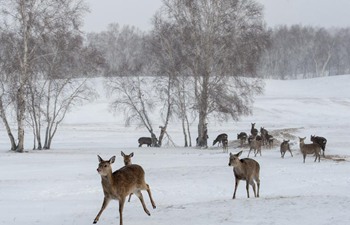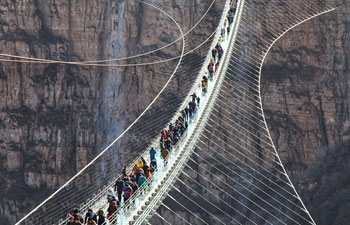MEXICO CITY, Dec. 25 (Xinhua) -- Guatemala will move its embassy in Israel to Jerusalem, becoming the first country to follow U.S. President Donald Trump's controversial stance to recognize Jerusalem as Israel's capital, according to an announcement by the Central American country's President Jimmy Morales Sunday.
After speaking with Israeli Prime Minister Benjamin Netanyahu, Morales announced on his Facebook account that one of the most important topics they discussed was the "return of Guatemala's embassy to Jerusalem" from its current location in Tel Aviv.
"I have given instructions to the foreign ministry that it starts the necessary respective coordination to make this happen," Morales added.
On Dec. 6, Trump announced his decision to recognize Jerusalem as the capital of Israel, and move the U.S. embassy from Tel Aviv to Jerusalem, which is being strongly opposed by the international community.
The United Nations (UN) Security Council subsequently voted on a Egypt-drafted resolution to make the United States withdraw its decision. While adopted by all the other 14 members of the Security Council, it was, however, vetoed by the United States.
As a sequel to that, the UN General Assembly voted to adopt a non-binding resolution on the status of Jerusalem. The 128-9 vote indicated that few countries favor the U.S. decision. Guatemala was one of them.
Jerusalem, located on a plateau in the Judaean Mountains between the Mediterranean and the Dead Sea, is considered a holy city in three major Abrahamic religions -- Judaism, Christianity and Islam.
In 1967, Israel took over East Jerusalem from Jordan and declared the whole city as its "eternal indivisible capital" in 1980. However, it has not been recognized by the international community.
The Palestinians want an independent state with East Jerusalem as its capital in the final settlement to the territorial dispute.
The last direct peace negotiations, brokered by the United States, stopped in April 2014 due to differences on major issues like settlement, security, borders and the recognition of a Palestinian state.
Trump's Dec. 6 announcement has triggered weeks of clashes between Palestinian protesters and Israeli security forces, which have left 12 Palestinians dead.

















